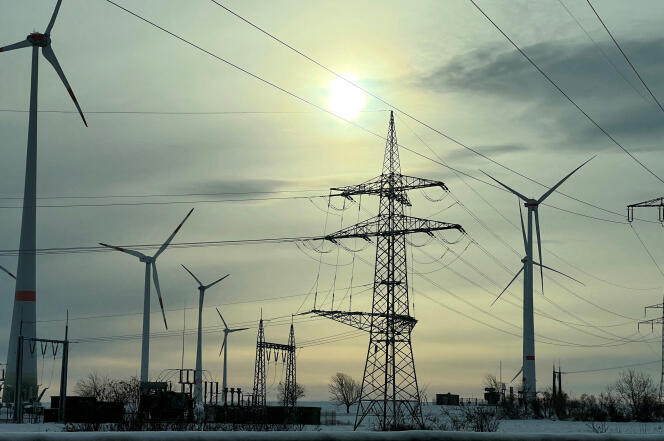


Germany has scored a major milestone victory for 2023 in its efforts to achieve carbon neutrality by 2045. Based on preliminary data released on Thursday, January 4, by the Agora research center, an organization focused on energy transition, the nation's CO2 equivalent emissions (CO2e) for the year stood at 673 million tonnes. This represents a 46% reduction from the levels recorded in 1990. This is the lowest level of emissions since the 1950s and exceeds the annual reduction target set by the German Climate Act by 49 million tonnes.
Although a drop was expected due to the economic recession, it turned out to be much larger than observers had anticipated. The report notes that two factors were at work. First, coal-fired power generation fell to its lowest level since the 1960s. This alone saved 44 million tonnes of CO2e. This can be explained by an exceptional fall in electricity demand in Germany in 2023 (-3.9%), by the increase in renewable energy and by a reduction in electricity exports. Somewhat contradictorily, imports have risen. However, only half of the electricity purchased by Germany from its neighbors came from renewable sources. A quarter came from France's nuclear power sites, the same year that Germany closed its last nuclear power plants.
The second cause for the reduction was the high energy prices of 2023 that weighed on industries that emit the most greenhouse gases. Production in energy-intensive specialties (mainly chemicals and steel but also glass, paper and ceramics) contracted by 11%, while the economy as a whole shrank by just 0.3%. Chemicals, Germany's great specialty, played a major role in this downturn: as imports of cheap Russian gas came to a halt, many plants ceased production as they became unprofitable.
These factors have led Agora's experts to temper enthusiasm about Germany's decarbonization: it is not certain that this evolution is sustainable. According to their calculations, only 15% of emission reductions are linked to the development of renewable energy sources or other sustainable measures. The rest is explained by the economic situation. In the building and transport sectors, decarbonization targets have largely been missed. Once the country emerges from recession, a large proportion of the reduced CO2 production could return, or be merely displaced if heavy industry relocates, with no positive impact on global emissions.
However, Germany's track record when it comes to increasing the use of renewable energies is in line with its targets. For the first time in 2023, more than half of the country's electricity came from renewable sources: 56%, compared with 47.4% in 2022, as reported by the Federal Network Agency on Wednesday, January 3. This historic high brings the country closer to its target of 80% renewable electricity by 2030. Both the weather and the development of production capacity, particularly in the solar sector, played a favorable role.
You have 20% of this article left to read. The rest is for subscribers only.
